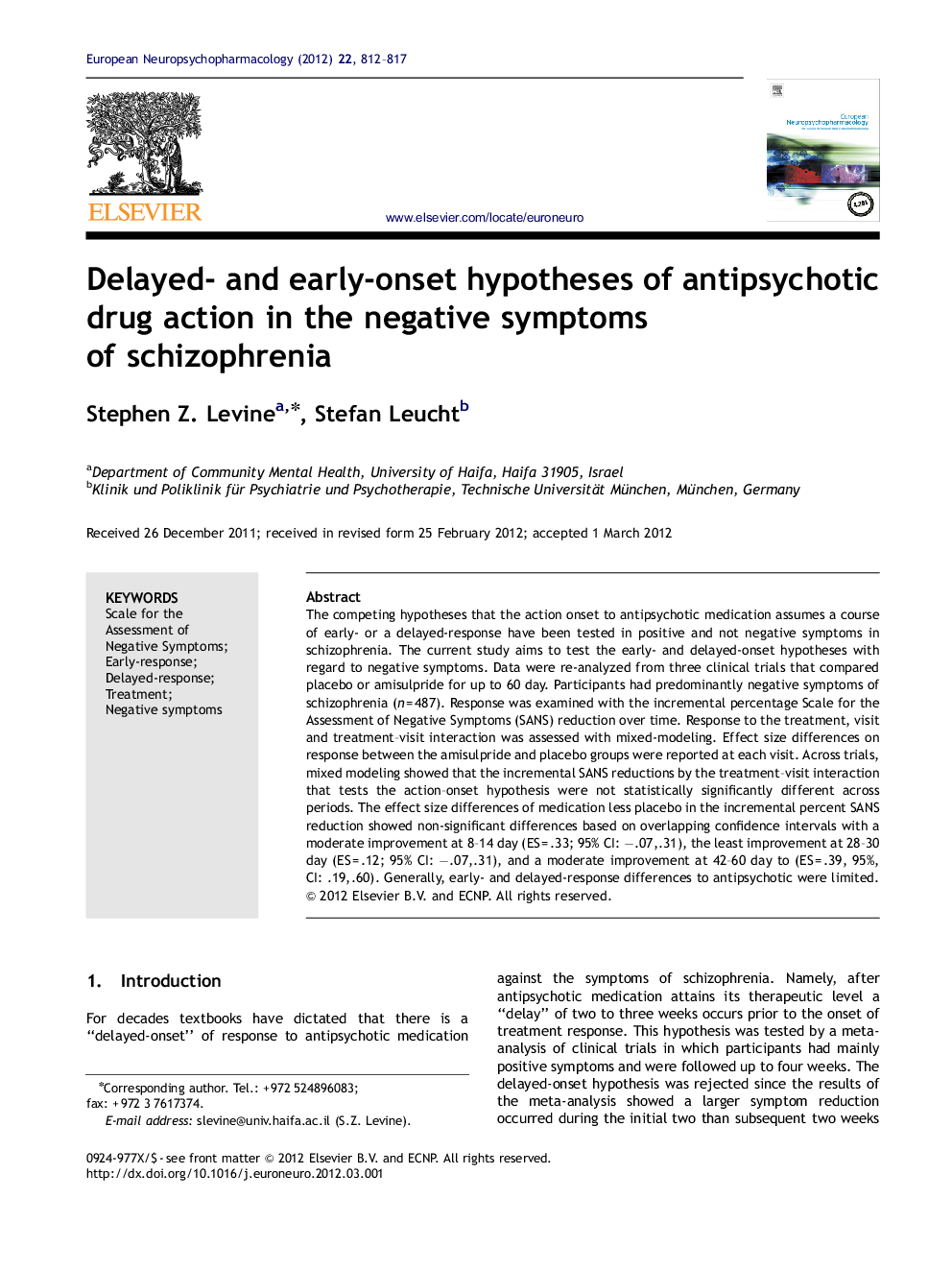| Article ID | Journal | Published Year | Pages | File Type |
|---|---|---|---|---|
| 318905 | European Neuropsychopharmacology | 2012 | 6 Pages |
The competing hypotheses that the action onset to antipsychotic medication assumes a course of early- or a delayed-response have been tested in positive and not negative symptoms in schizophrenia. The current study aims to test the early- and delayed-onset hypotheses with regard to negative symptoms. Data were re-analyzed from three clinical trials that compared placebo or amisulpride for up to 60 day. Participants had predominantly negative symptoms of schizophrenia (n=487). Response was examined with the incremental percentage Scale for the Assessment of Negative Symptoms (SANS) reduction over time. Response to the treatment, visit and treatment–visit interaction was assessed with mixed-modeling. Effect size differences on response between the amisulpride and placebo groups were reported at each visit. Across trials, mixed modeling showed that the incremental SANS reductions by the treatment–visit interaction that tests the action–onset hypothesis were not statistically significantly different across periods. The effect size differences of medication less placebo in the incremental percent SANS reduction showed non-significant differences based on overlapping confidence intervals with a moderate improvement at 8–14 day (ES=.33; 95% CI: −.07,.31), the least improvement at 28–30 day (ES=.12; 95% CI: −.07,.31), and a moderate improvement at 42–60 day to (ES=.39, 95%, CI: .19,.60). Generally, early- and delayed-response differences to antipsychotic were limited.
